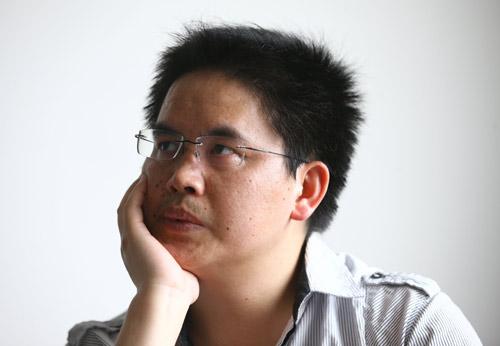 Wang Shuixiong says the income of the richest grows far faster than those less wealthy. [Wang Jing / China Daily]
Wang Shuixiong says the income of the richest grows far faster than those less wealthy. [Wang Jing / China Daily]Wang Shuixiong is an associate professor from the School of Social Sciences at Renmin University of China, and is also a member of the China General Social Survey (CGSS) group. He spoke to METRO about why the resident income growth is lagging behind an increasing GDP.
Q: Statistics from the Chinese Academy of Social Sciences (CASS) show that resident income hasn't deteriorated, but the public feels otherwise. Can you explain the different opinions?
A: The survey done by CASS tended to use "average income" as the measure, but in reality, the average number is usually higher than this.
Q: How does CASS do the annual survey?
A: Their research is based on a study of urban residents. They sample a certain number of typical families and let them note down their income and expenses every month. Then they collect these numbers and analyze them.
Q: Are there any flaws with this system?
A: Yes. In some wealthy families, they might be too busy to note down everything that was earned or spent. I can lead to one particular result - when they add up all the numbers, the total is smaller than the GDP. We call that a "hole."
Q: What does a "hole" really mean in terms of GDP?
A: It is a "grey income." In our study, we found it goes into the pocket of the top 10 percent of the rich people and makes them even wealthier.
In 2006, a sociologist found that in urban areas, 10 percent of the wealthiest people own flats that are 36 times the space of the poorest. I think this number is close to reality. Our research shows that the income of the richest grows far faster than those less wealthy.
Q: Do you think this is just a stage as China develops?
A: It is actually closely related to government policy. From the beginning of the 1980s, China has promoted export-oriented economies. They lead to a much higher income for those involved. This also explains why small factories in southeastern China became rich first.
Q: But why has the inequality lasted so long?
A: The whole economy is export-oriented and China is able to maintain a relatively large inequality. First, manufactured products can be sold abroad so businessmen don't need to worry if domestic customers aren't interested. Second, they intentionally keep the wages low so they can get cheap labor and maintain price competitiveness.
Most importantly, China has a large number of markets that can satisfy people with different amounts of money. For example, if you are a billionaire, you can buy Chanel and Fendi, but if you live on welfare, you can still buy cheap food and clothing in some markets.
Q: Why do we now feel more strongly about inequality?
A: Society is getting more and more unequal and people's mindsets are changing fundamentally. The older generation is easily satisfied with incomes above what they earned as farmers, but the newer generation doesn't have this background. Therefore, they tend to complain that life is unfair. The series of suicides in Foxconn is a perfect example.
Q: How can we readjust this inequality?
A: There are two ways. First, we need to change the proportions of GDP - for example, the government can reduce its income or cut corporation income to leverage resident income. Second, the government can control wealthy people by levying heavier taxes, and raising the wages of low-income groups.
Q: How long do you predict it will be before we eliminate inequality and build a relatively equal society?
A: I guess faster than it took developed countries, so perhaps 20 to 30 years.





